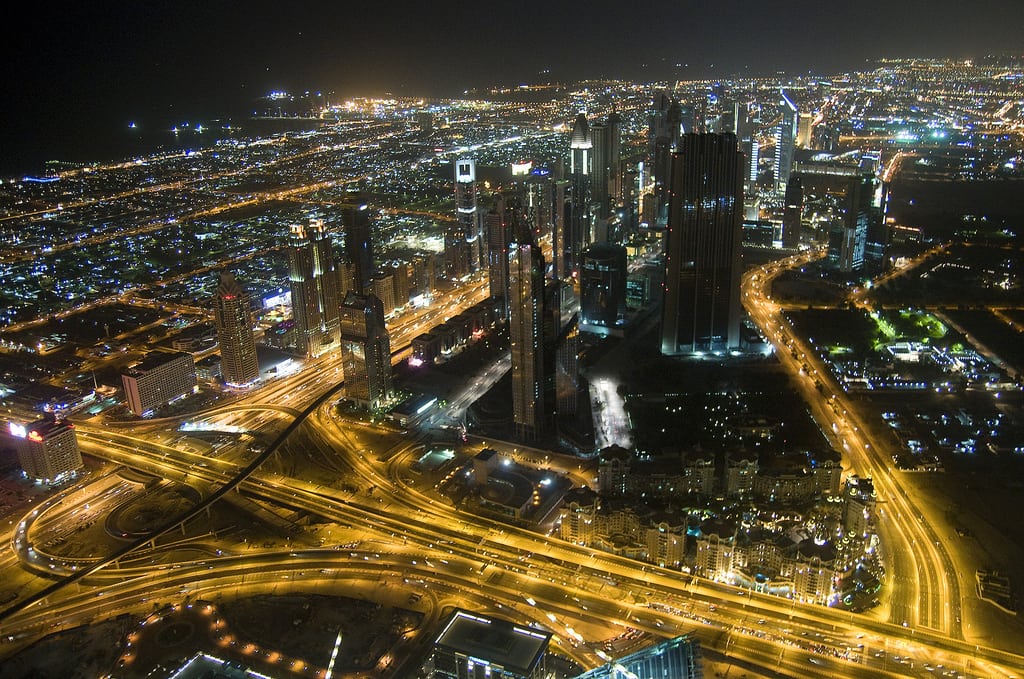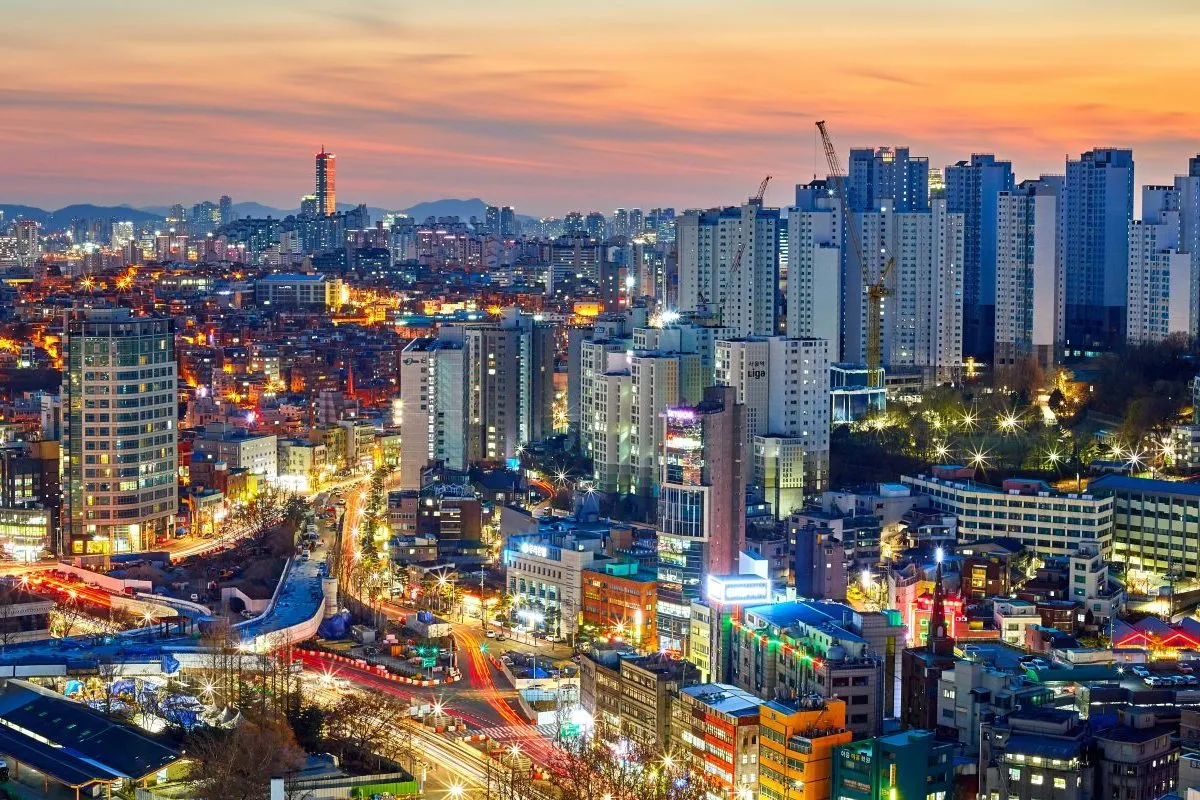Dubai's back to its crazy ways, but it may not get out of hand this time

Skift Take
Rewa Zeinati, a freelance writer living in Dubai, has noticed more business cards with photos of scantily clad women offering massages piling up on her car windscreen lately.
“Sometimes I’m away for 30 minutes and come back to find a stack of them,” she said. “I’ve definitely seen an increase this year.”
Residents say it’s harder to find taxis, book restaurants or golf courses and get school places for their children, with Dubai’s economy posting the fastest growth since 2007. Home rents climbed about 17 percent last year, while air traffic and non-oil trade hit record highs.
The drivers of growth are different this time, with surging demand for services, legal and otherwise, as well as exports. That suggests any new Dubai boom won’t emulate the one that peaked in 2007, when the economy soared 18 percent and then crashed to a near-default after the global crisis of 2008.
“Hotel occupancy is up quite significantly and the airport is crazy,” said Abdul Kadir Hussain, chief executive officer at Mashreq Capital DIFC Ltd., who runs the region’s best-performing fixed-income funds as of December 2012. “If you go to Jebel Ali Free Zone, rents are up and it’s fully occupied. That part of the model is working very well and has recovered very well.”
‘Crazy’ Airport
In the first half of 2012, construction shrank 2.5 percent from a year earlier while earnings from hotels and restaurants grew 16 percent. It was the opposite five years earlier, when building jumped 23 percent while the hospitality industry added just 4.5 percent. The economy expanded 4.3 percent in 2012, according to preliminary estimates.
Dubai’s stock index gained 12 percent in the past month, four times the advance of the MSCI Emerging Markets benchmark. Shares of Emaar Properties PJSC, which owns Dubai Mall, the world’s largest shopping center, jumped 18 percent. Yields on debt of Emirates airline and Jebel Ali Free Zone FZE, which runs one of Dubai’s main commercial hubs, fell to record lows.
Stocks in Dubai are relatively cheap and “a good investment vehicle this year,” since the economic rebound will “trickle down to corporate earnings,” said Haissam Arabi, chief executive officer of Dubai-based hedge fund Gulfmena Investments Ltd. While Dubai’s benchmark climbed 20 percent in 2012, the most since 2007, it’s still less than a quarter of its historical peak in November 2005.
Dubai sometimes still evokes its headline-grabbing boom, raising concerns that the economy could overheat again. It announced plans in November to build an even bigger shopping center than Dubai Mall, alongside a complex of five theme parks.
Mega-Project Debts
Spending on such mega-projects led the emirate to rack up about $113 billion of debt. It required a $20 billion bailout in 2009 from neighboring Abu Dhabi, the largest and richest of the seven sheikhdoms in the United Arab Emirates. Dubai has about $40 billion of debt due by the end of next year, according to Bank of America Merrill Lynch.
The U.A.E.’s central bank, based in Abu Dhabi, has taken steps to ensure economic growth is better balanced. Last month it capped mortgage lending at 70 percent of property value for Emiratis and 50 percent for foreigners, with lower rates for second mortgages.
It makes sense for Dubai to steer away from an economy hoisted by property and construction, said Emad Mostaque, a strategist with Noah Capital Markets in London.
“Abu Dhabi doesn’t want to bail out Dubai again,” he said. U.A.E. authorities are trying to “keep their economy as stable and bullet-proof as possible when they see instability all around them,” he said.
The wave of uprisings in Arab countries over the past two years has hurt some regional economies. Dubai, untouched by unrest, may be among the beneficiaries.
Tourist Allure
“Political stability makes it a very attractive place for travelers in the region to come and spend their time and money,” said Khatija Haque, senior economist at Dubai-based lender Emirates NBD PJSC. The recovery in retail, tourism and transport “reflects the strength of consumption in the U.A.E., but more importantly in the wider region.”
Saudi Arabia, the largest Gulf Arab economy, expanded at an average pace of 7.7 percent in the past two years, driven by government spending to boost employment and avert unrest. Emirates has added a third daily flight to Jeddah, Saudi Arabia to cope with demand during Dubai’s shopping festival this month.
Growth in the six-nation Gulf Cooperation Council, which includes Saudi Arabia and the U.A.E., was 5.1 percent in 2012, according to HSBC Holdings Plc. That’s about four times the IMF estimate for advanced economies.
Golf Congestion
Dubai’s foreign trade excluding oil rose to a record 1.29 trillion dirhams ($351 billion) in the first 10 months of 2012, while passenger traffic hit a record 5 million in July.
Like construction, finance is playing a smaller part in the current expansion than it did during the boom. It grew 3.2 percent in the first half of 2012, compared with 29 percent for the whole of 2007.
Still, Dubai has plans to boost that industry too, including a Shariah finance council that will help attract more wealth from the world’s 1.6 billion Muslims. Islamic financial assets worldwide may double to as much as $3 trillion by 2015, Standard & Poor’s said in September.
That’s another reason why Mashreq Capital’s Hussain may have more trouble finding slots for early-morning rounds at his favorite golf course.
“In the last three winters I could just drive up to my golf club, get out and play” he said. This year, after twice being turned away because the course was full, “I decided to call two days before. And they said ‘yeah, but not till 9:30’.”
--With assistance from Alaa Shahine in Dubai. Editors: Ben Holland, Digby Lidstone
To contact the reporter on this story: Dana El Baltaji in Dubai at delbaltaji@bloomberg.net
To contact the editor responsible for this story: Andrew J. Barden at barden@bloomberg.net
![]()




